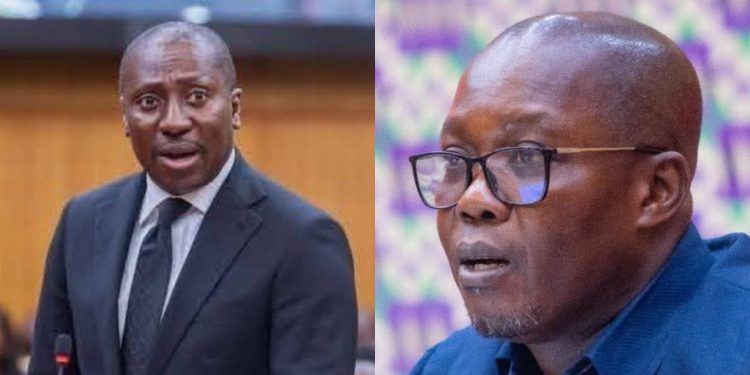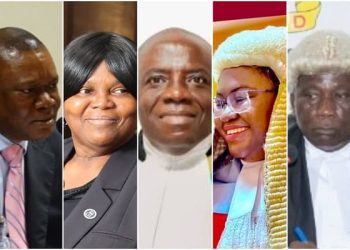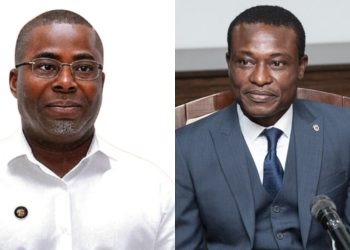Ghana’s Minority Leader in Parliament, Alexander Afenyo-Markin, has formally challenged a ruling by the First Deputy Speaker, Bernard Ahiafor, that blocked parliamentary debate on a private member’s motion seeking review of a controversial directive issued by the Chief of Staff.
The motion, which was struck down on grounds of being sub judice, addressed recent mass revocations of public sector appointments.
The motion in question — Motion No. 16 — sought to invite parliamentary scrutiny of the directive, which has drawn national attention due to its sweeping nature and implications for continuity in public administration.
On Friday, June 13, 2025, Afenyo-Markin filed an application on the Floor of Parliament, urging the Speaker to set aside the earlier ruling.
He argued that the decision to sustain a preliminary objection based on ongoing litigation “fundamentally misconceives the nature and application of the sub judice rule,” and accused the Speaker of subordinating Parliament’s constitutional role to the mere existence of a court case.
“This ruling establishes a dangerous precedent that threatens the very foundations of parliamentary democracy in Ghana,” Afenyo-Markin stated.
Parliament must not be muzzled
The Minority Leader maintained that Parliament’s deliberative and oversight powers cannot be neutralized simply because a citizen has filed a lawsuit involving the same or related matters.
He insisted that only an express court injunction backed by strong evidence of irreparable harm can justifiably bar a constitutional body from exercising its functions.
Citing the Supreme Court’s recent ruling in Vincent Ekow Assafuah vs. Attorney General, Mr. Afenyo-Markin noted that the country’s apex court held that the work of constitutional bodies cannot be frozen by the mere initiation of legal proceedings.
“The mere pendency of the action cannot, therefore, justify parliamentary inaction,” he emphasized.
According to him, the ruling by Speaker Ahiafor introduces what he called “a perverse incentive structure,” whereby any person could suppress parliamentary debate by filing lawsuits on national matters.
“Such a practice, if allowed to stand, would undermine Parliament’s constitutional independence and weaken its capacity for democratic oversight,” the Minority Leader warned.
Motion to reinstate agenda item under Order 127
Mr. Afenyo-Markin is invoking Order 127 of the Standing Orders of Parliament, which grants the Speaker revisionary powers to set aside previous rulings under specific circumstances.
He called for the restoration of Motion No. 16 to the Order Paper to allow a full debate on the Chief of Staff’s directive and its national implications.
“Mr. Speaker, such action would reaffirm Parliament’s constitutional independence, protect the integrity of democratic accountability, and ensure that urgent matters of national importance receive the attention they deserve,” he urged.
Parliament has yet to issue an official response to the Minority Leader’s motion, and it remains to be seen whether Speaker Ahiafor will exercise his discretionary power to revisit the ruling. Political observers and legal experts are already weighing in on the implications of the dispute, which pits parliamentary procedure against judicial prudence.
With both Parliament’s independence and the principle of sub judice now in tension, the outcome of this challenge could set an important precedent on the boundaries of legislative debate in Ghana’s constitutional democracy.












